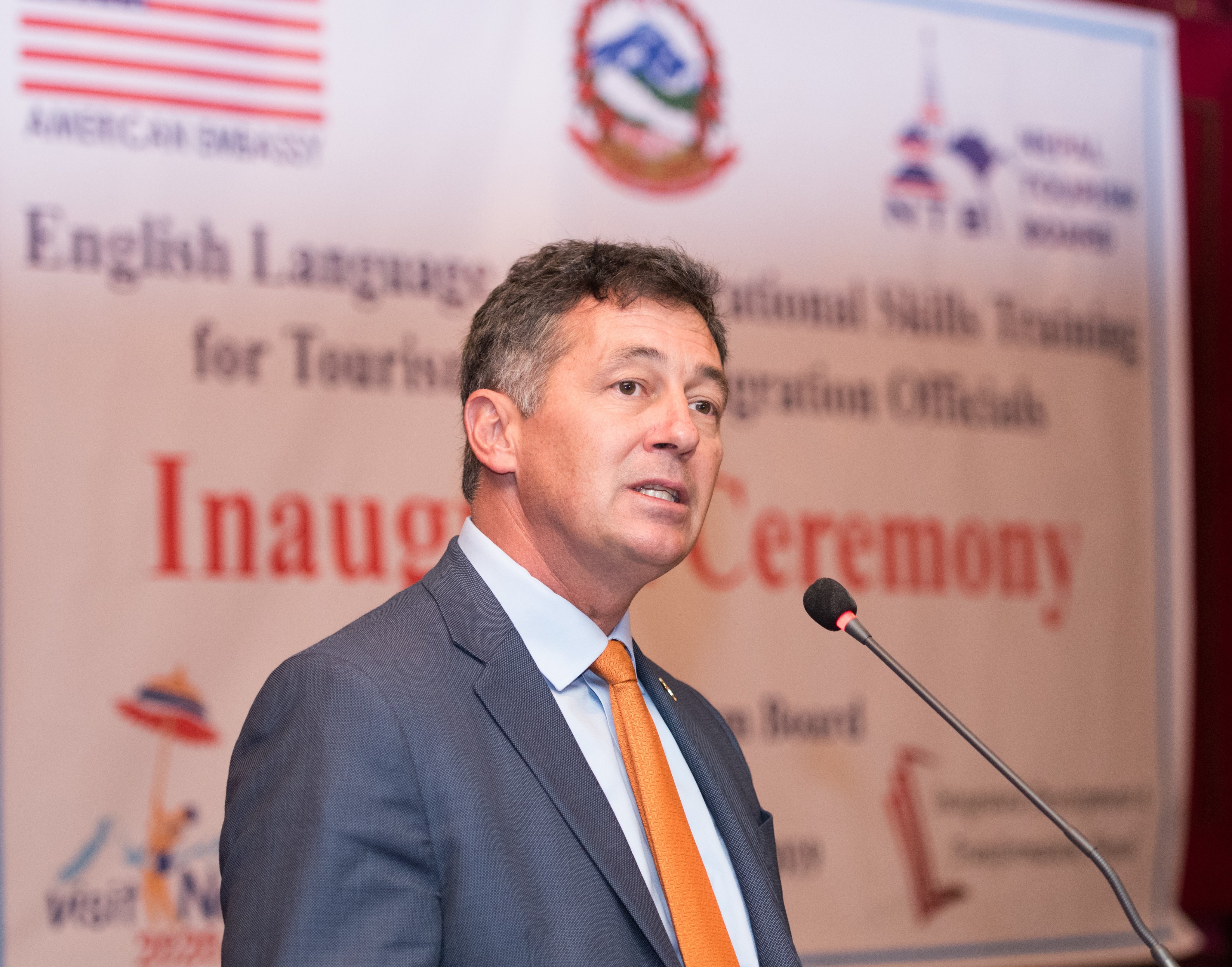Pulling back from partnership loss for Nepal, US, says Berry
Kathmandu, September 27
Ambassador of the United States to Nepal Randy Berry today said pulling back from Nepal’s partnership with the US would be a loss for Nepal, for Nepalis, and for the US as well.
The ambassador’s concern came amid a pending parliamentary ratification of $500 million Millennium Challenge Corporation Programme. Opinions about the MCC have been divided in Nepal on some of its conditions, and some leaders of the ruling and opposition parties as well as opinion makers have objected to the scheme.
Ambassador Berry attributed these complications to suspicion and misinformation. “My concern is that despite the long record of the US partnership and evidence of decades that demonstrates our good faith, our progress and partnership will be harmed, bogged down by suspicion and distracted by misinformation,” he said at an interaction organised by Institute for Strategic and Socio-Economic Research in Kathmandu.
Stating that it was Nepal that asked the US to develop the MCC Compact, Berry said the US worked with Nepalis to identify what projects would help harness the power of the private sector. Berry said the MCC project focused on constructing power transmission lines that would bring Nepal’s power to markets that were ready to pay Nepal good money for it.
“It is a simple fact of geography and economics that means India. Hopefully that will include Bangladesh, though, again, a simple fact of geography, if Nepal wants to sell power to Bangladesh, it will require an agreement with India,” he said. Berry also said the MCC requiring the Parliament’s ratification was to ensure that the Nepali people wanted the US to spend $500 million in Nepal. The envoy also expressed concern that State Partnership Programme, another programme that Nepal wanted, risked being derailed due to misinformation and suspicion. State Partnership Programme is like a sister city programme to build Nepal’s relationship with one of our state National Guards, the security forces that are often the lead for disaster response in the US, he said.
“If Nepal’s leaders decide they want to say no to the US assistance in these areas, that is Nepal’s sovereign decision. It will, however, be an abrupt reversal of both the specific requests that the Nepal government has made of us and an abrupt reversal of the spirit of our partnership, the partnership that has benefited us both,” said Berry, adding the US would, however, respect Nepal’s decision.
Berry said pulling back from Nepal’s partnership with the US would not be in keeping with Nepal’s historical values, including the principle of amity to all, enmity to none.
“Diminishing Nepal’s historic partnership with the US would not make Nepalis more prosperous and it would not make Nepal more secure, more sovereign, or more resilient,” he said. “I hope, in the end, our record of mutual benefit and trust will prevail. I remain hopeful, even confident, that these concerns will prove unfounded.” Berry also expressed disappointment over ‘periodic suspicion’ about US motives, especially in relation to Indo-Pacific Strategy. He said the IPS was just the name we gave to US policy that strived to protect and advance a free, open, and secure Indo-Pacific Region.
In reference to concerns about the IPS being a NATO-like military alliance, Berry said security was just one pillar of the IPS, with other being economic and governance. Supporting a free, open, and secure Indo-Pacific was not for or against any country. “We have not asked Nepal to be pro-America, though we welcome the friendship and goodwill. We have not asked Nepal to be against any country,” he said.






